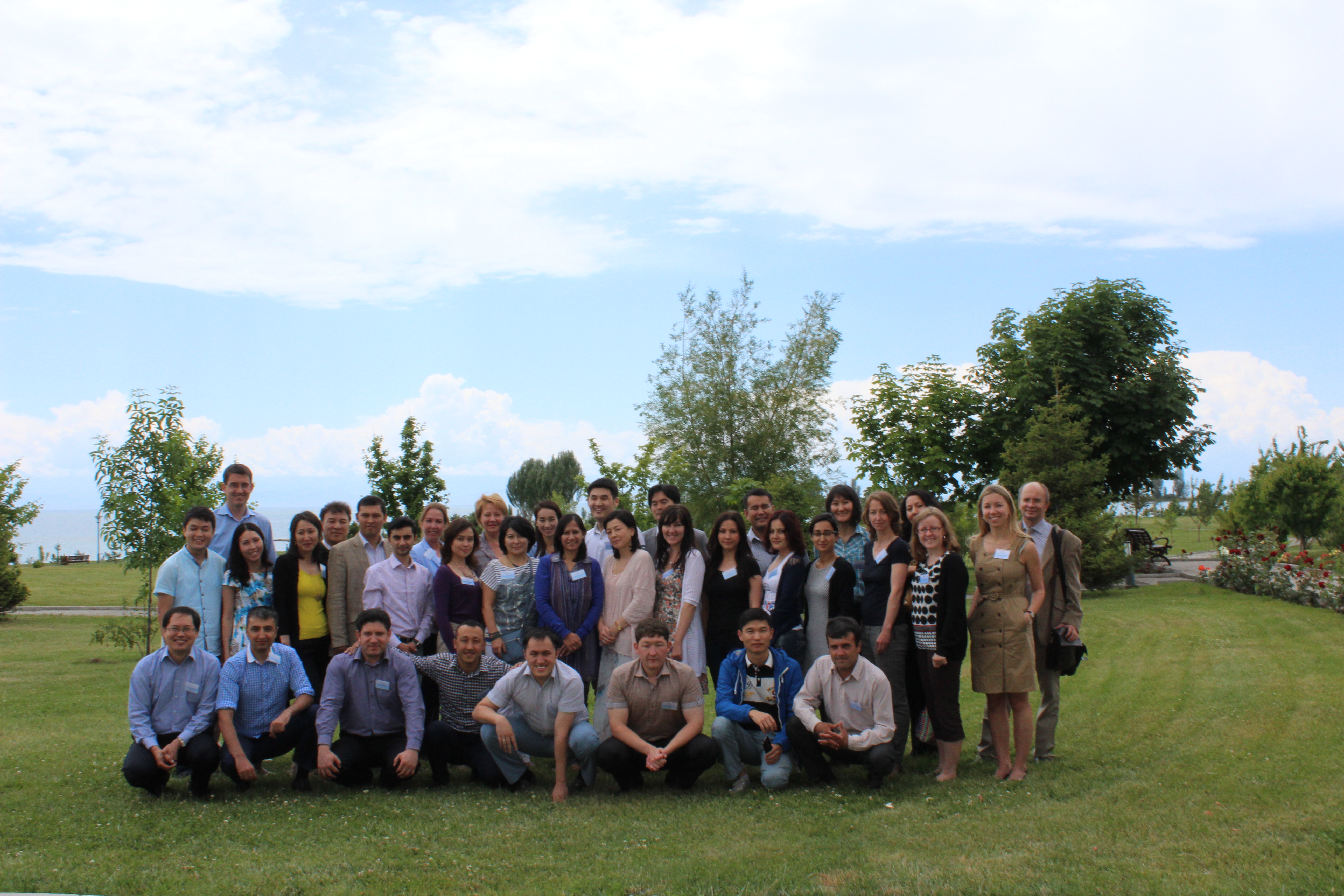2015 International Summer School
 2015: Life in Kyrgyzstan International Summer School
2015: Life in Kyrgyzstan International Summer School
on Impact Evaluation Methods in Central Asia
Summary
- Dates: 21–28 June 2015
- Location: Ak-Maral Resort, Issyk-Kul, Kyrgyzstan
Description
Central Asia is one of the most under-researched regions in the world. At the same time, evidence-based policy making is rarely practiced in Central Asia. Both deficits are related to a lack of suitable micro data and limited capacity to understand or practice rigorous impact evaluations.
The ‘Life in Kyrgyzstan’ International Summer School on ‘Impact Evaluation Methods in Central Asia’ is being offered in 2015 to promote the capacity of researchers, practitioners and policy makers in the region to commission, conduct and interpret rigorous impact evaluations and increase their role in evidence-based policy making. The School is being offered by the Stockholm International Peace Research Institute (SIPRI), the Institute of Public Policy and Administration of the University of Central Asia, International Security and Development Center (ISDC) and the United Nations University Maastricht Economic and Social Research Institute on Innovation and Technology (UNU-MERIT).
The Summer School teach the theory and practice of theory-based impact evaluations and related state-of-the-art quantitative and qualitative techniques. Participants have gained a high-level understanding of the importance of these instruments and their role in the design and assessment of public policies and development interventions.
Course content has included lectures on rigorous impact evaluations, experimental and quasi-experimental methods to conduct evaluations and how to implement them. Participants also gained hands-on experience designing impact evaluations through group exercises and they learned about the ‘Life in Kyrgyzstan’ panel dataset collected by the organisers.
Format
The Summer School took place from the 21 to 28 June 2015. The main language of instruction was Russian. However, key sessions were delivered in English with simultaneous translation into Russian.
Sessions have included lectures, class discussions, group work, and case study exercises.
Speakers:
- Professor Tilman Brück, Director, ISDC
- Dr Eleonora Nillesen, UNU-MERIT
- Dr Damir Esenaliev, SIPRI
- Dr Anastasia Aladysheva, SIPRI
Who could apply?
- Practitioners, professionals and academics commissioning, conducting or interpreting impact evaluations at national or international organisations, nongovernmental organisations, agencies, ministries, universities and think tanks based in or working with Central Asia (Kazakhstan, Kyrgyzstan, Tajikistan, Turkmenistan and Uzbekistan)
- Applicants residing and working outside Central Asia will be considered on a caseby-case basis
- A completed first degree in a relevant social science is a minimum requirement for acceptance
- A working knowledge of basic statistics is required. The online component of the selection process includes basic statistics exercises
- Graduate students could apply but without given priority.
Cost
Participation was free of charge for up to twenty successful applicants and covered:
- Tuition
- Regional travel expenses based on reasonable and average air and bus ticket prices
- Economy class return travel from Bishkek to Issyk-Kul
- Accommodation and food
Additional spaces were available for self-funded participants.
Application requirements
Applicants were required to submit, in English or Russian:
- A one-page curriculum vitae
- A one-page essay on their motivation to attend the Summer School and how their attendance will benefit impact evaluation and policymaking in Central Asia
- A letter of support from their current employer
Shortlisted candidates were required to complete an online three-week programme that included reading background materials, a research assignment on impact evaluations and an online test.
Upon successful completion of the Summer School, the participants have received a certificate of attendance.
Organising Institutions:
- Stockholm International Peace Research Institute Stockholm International Peace Research Institute is an independent international institute dedicated to research into conflict, armaments, arms control and disarmament. Established in 1966, SIPRI provides data, analysis and recommendations, based on open 4 sources, to policymakers, researchers, media and the interested public. Based in Stockholm, SIPRI also has a presence in Beijing and Washington, DC and is regularly ranked among the most respected think tanks worldwide. For more information on SIPRI, visit www.sipri.org
- Institute of Public Policy and Administration, University of Central Asia provides in-depth analysis of Central Asian economic policies and quality professional development opportunities for civil servants in the region. For more information on the Institute, visit www.ucentralasia.org/ippa.asp
- ISDC – International Security and Development Center provides evidence-based analysis and policy advice on the interactions of security, conflict, violence and fragility with socioeconomic development, growth, employment and poverty alleviation. ISDC is based in Berlin and collaborates with a broad range of partners in academia, policy making and practice. For more information on ISDC, visit www.isd-center.org
- United Nations University – Maastricht Economic and Social Research Institute on Innovation and Technology UNU-MERIT is a joint research and training institute of United Nations University and Maastricht University, based in the south of the Netherlands. The institute explores the social, political and economic factors that drive technological innovation, with a particular focus on creation, diffusion and access to knowledge. UNU-MERIT covers all aspects of governance in domestic and global organizations, from risk assessment to policy analysis, design and evaluation. For more information on UNU-MERIT, visit www.merit.unu.edu
Funder:
The Summer School was funded by the International Initiative for Impact Evaluation (3ie) as part of the “Impact Evaluation of LivingSidebySide®, Peace Building Educational Programme in Kyrgyzstan” research project. 3ie is an international grant-making nongovernmental organisation promoting evidence-informed development policies and programmes in low- and middle-income countries. 3ie funded impact evaluations and systematic reviews that generate evidence on what works in development programmes and why.
All information about Summer School can be downloaded from here.
